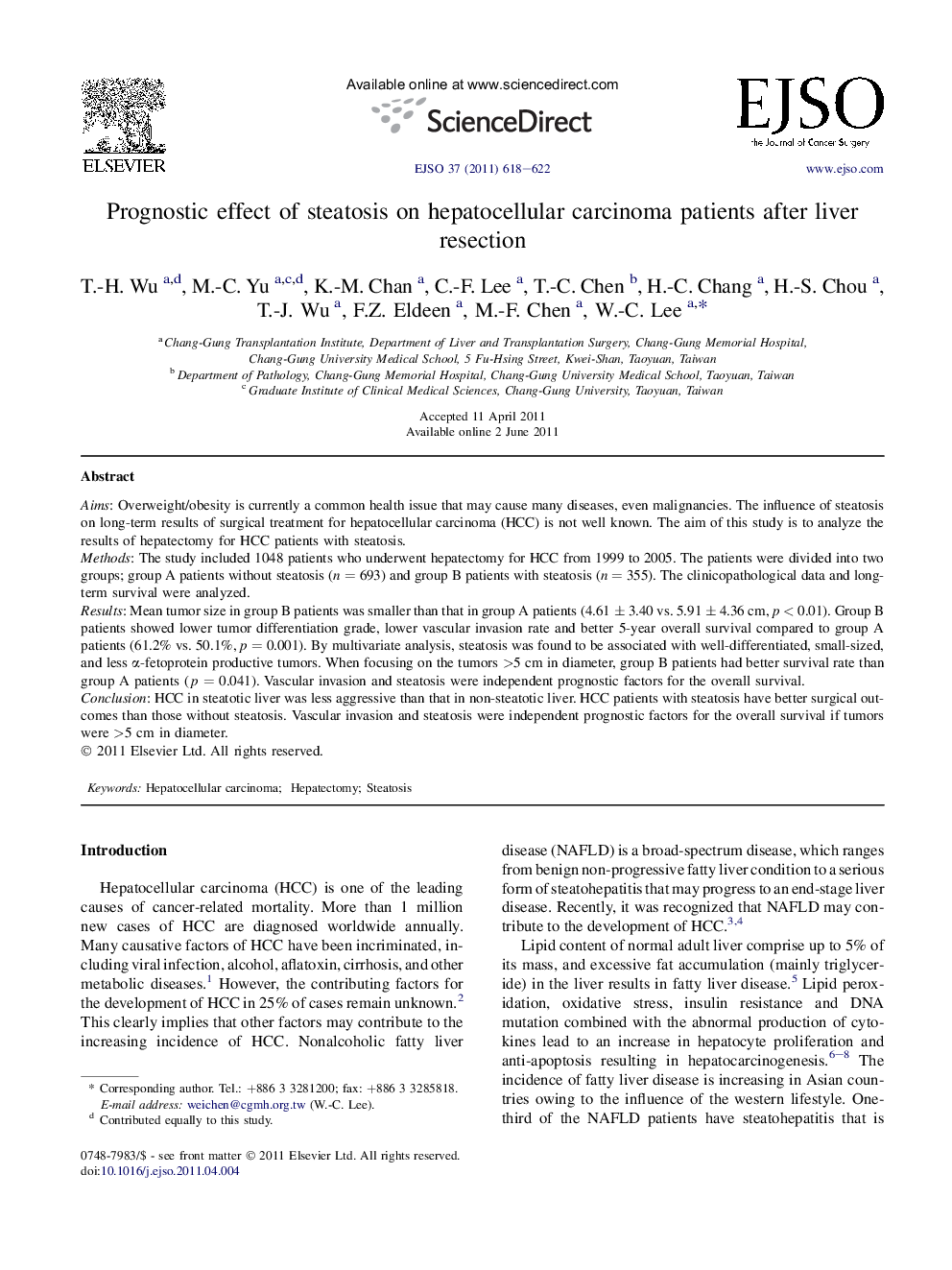| Article ID | Journal | Published Year | Pages | File Type |
|---|---|---|---|---|
| 3986160 | European Journal of Surgical Oncology (EJSO) | 2011 | 5 Pages |
AimsOverweight/obesity is currently a common health issue that may cause many diseases, even malignancies. The influence of steatosis on long-term results of surgical treatment for hepatocellular carcinoma (HCC) is not well known. The aim of this study is to analyze the results of hepatectomy for HCC patients with steatosis.MethodsThe study included 1048 patients who underwent hepatectomy for HCC from 1999 to 2005. The patients were divided into two groups; group A patients without steatosis (n = 693) and group B patients with steatosis (n = 355). The clinicopathological data and long-term survival were analyzed.ResultsMean tumor size in group B patients was smaller than that in group A patients (4.61 ± 3.40 vs. 5.91 ± 4.36 cm, p < 0.01). Group B patients showed lower tumor differentiation grade, lower vascular invasion rate and better 5-year overall survival compared to group A patients (61.2% vs. 50.1%, p = 0.001). By multivariate analysis, steatosis was found to be associated with well-differentiated, small-sized, and less α-fetoprotein productive tumors. When focusing on the tumors >5 cm in diameter, group B patients had better survival rate than group A patients (p = 0.041). Vascular invasion and steatosis were independent prognostic factors for the overall survival.ConclusionHCC in steatotic liver was less aggressive than that in non-steatotic liver. HCC patients with steatosis have better surgical outcomes than those without steatosis. Vascular invasion and steatosis were independent prognostic factors for the overall survival if tumors were >5 cm in diameter.
